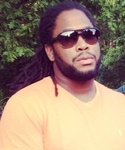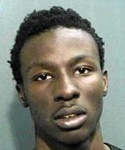The gun buyback program launched last month in Boston is not a grand solution to the city’s gun violence, the program’s administrators agree.
Guns will not disappear from the streets of Dorchester, Roxbury and Mattapan. It will certainly not keep them from flowing into the city. But authorities hope the drive will help bring the problem to light and rouse the community against illegal firearms.
“What you see before you today is that our community is united,” Mayor Martin J. Walsh said when he unveiled the plan. “And we are united with them, in the goal of making our neighborhoods, our homes and our children safe.”
The buyback netted more than 230 guns in its first three weeks, most of which are semi-automatic high-caliber handguns, police Sgt. Michael McCarthy said. Those who bring working firearms into a Boston police station or one of several other specified locations are given a $200 Visa gift card and are granted amnesty from charges for possessing the gun. These guns cost several hundred dollars legally, but can sell for less on the streets, McCarthy said.
When guns are turned in to the buyback program, police test the test the weapons to check if they match the ballistics of a weapon that has been used in a crime. If it tests positive— that is, that it has been used in a crime— the gun’s owner would not be immune from prosecution.
Not all of the guns collected in Boston’s buyback program have been tested yet, but to date none have tested positive, said Sgt. McCarthy.
This is consistent with what researchers expect. Harvard Injury Control Research Center Director David Hemenway said the guns collected by these types of programs do not necessarily correlate with the types of guns used in street violence.
Scientific research has never shown gun buyback programs to be successful in reducing gun violence. But Hemenway said that even while there’s no evidence that buybacks reduce violence, accidents or suicides, the programs may still have less tangible benefits.
“They help mobilize the community together to work together,” he said.
This sentiment has been echoed by city and law enforcement officials who launched the program after an uptick in shooting deaths in the first months of 2014, including the accidental shooting of 9-year-old Janmarcos Peña by his 14-year-old brother. In total, 15 people were killed with a gun in Boston through April 17, almost double the eight victims from the same time period in 2013.
“This program is about empowering our community, and bringing everyone to work together to get illegal guns off our streets,” Boston Police Commissioner William T. Evans said in a City Hall press release.
The buyback is part of a larger City Hall strategy announced in the wake of the violent winter at the start of Walsh’s first term as mayor and Evans’ first months as police commissioner.
In addition to the buyback and a plan to create 10,000 summer jobs for Boston youths, the initiative seeks to address gun trafficking by hosting a regional summit on the issue.
Experts agree curtailing the guns coming into the city is a key component to combating violence.
“If you want to make a difference in Boston the notion would be, ‘how can we reduce gun trafficking in Boston?’” Hemenway said.
The anti-violence advocacy group Citizens for Safety is trying to do just that.
“When the FDA comes in and does a recall they don’t just clear the shelves of the tainted peanut butter,” CFS Executive Director Nancy Robinson said. “They also go back to the peanut farm.”
Operating under this logic, Robinson said, CFS sought to identify the characteristics of trafficking and found one strikingly common denominator: women.
“Women are disproportionately involved in purchasing guns that are then very quickly turned around and used in crimes,” Robinson said. “Women are not only buying these illegally purchasing guns, they are also harboring them and transporting them.”
Robinson explained that much like sex-traffickers, gun traffickers prey on vulnerable women to execute their lucrative enterprises.
To combat this issue, CFS recently launched an extensive education initiative dubbed “Operation LIPSTICK.” The purpose of LIPSTICK, which stands for “Ladies Involved in Putting a Stop to Inner-City Killing,” is to change the culture among vulnerable populations and also to ask the question “Where did the gun come from?” after every shooting.
Gun trafficking poses a particular vexing problem to Massachusetts officials fighting gun violence. Though the Bay State has some of the strictest gun control laws in the country, neighboring New Hampshire’s loose laws create a convenient destination for traffickers.
According to trace survey data from the Bureau of Alcohol, Tobacco, Firearms and Explosives, 66.3 percent of crime guns recovered in Massachusetts in 2010 were originally purchased out of state, and New Hampshire is chief among the states of origin. The Granite State only has two of the 10 laws on the books that Mayors Against Illegal Guns has identified as being effective in combating gun trafficking.
Walsh’s office is keenly aware of this issue.
“In the absence of federal action to close dangerous loopholes that allow criminals and prohibited purchasers to have easy access to crime guns, we must take action regionally to confront this problem head on,” Walsh said in a statement.
But absent a silver bullet, city officials are hoping that by bringing gun violence into the public discussion, the community will come together to initiate real change.
“We are calling on everyone in the City of Boston to join us as we move forward,” Walsh said, “because everyone has a responsibility in this mission.”






